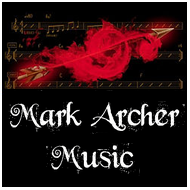 | ||||||||
|
|
|
Mark Archer interviews Pete Wareham During the Bath International Music Festival in May 2010 Blowout Sax welcomed Pete Wareham to Blowout Sax HQ for a brief interview and a chat before his afternoon gig with Acoustic Ladyland at the Pavilion. I'd introduced myself to Pete a couple of years earlier after a Polar Bear concert and I’d been in touch sporadically by text since then. Pete came across the road from the Pavilion and arrived at Blowout Sax HQ where my wife Cate and I gave him a warm welcome. Like all sax players Pete immediately inspected the Couesnon, Martin, King and King Zephyr saxophones on display in the reception area at Blowout. As we opened proceedings Pete described his set up (a balanced action Selmer tenor and a not so vintage Otto Link metal no 8 mouthpiece.) I was surprised by his choice of mouthpiece. Pete’s style of playing is impressive in its range of tone and volume yet I had always found it difficult to produce a full tonal range on the tenor sax with an Otto Link. Pete also noticed the huge black and white photo of the Blowout Sax Guinness World Record Event taken by my brother Simon Archer. We gave Pete a condensed history of how we managed to organise the largest sax ensemble to date of 529 saxophonists to open the Bath Festival in 2004. We described how, on the day, the great Pee Wee Ellis endeavoured to play a solo over the collective sound of literally hundreds of Blowout Sax students. Pete was evidently impressed. He was similarly impressed by the old reeds that my wife Cate had sprayed with silver paint and fixed around the frame of the World Record photo. ‘I could cover a wall with them,’ admitted Pete. I explained to Pete about our ethos of encouraging students to enjoy themselves as they learned the saxophone. I told him how our teaching was based around the development of aural skills and that our motto was ‘Maximum pleasure minimum pain’. I said that I thought that our methods worked pretty well since we have over 180 enthusiastic students currently at Blowout Sax Bath and Bristol. Once the brief guide of Blowout Sax HQ toll house was concluded I sat Pete down and questioned him about a number of sax issues. Mark Archer. What I love about the music of Acoustic Ladyland is that it is quintessentially British. A good 80% plus of the sax I teach is ‘American derived’. When I first heard AL on the Last Chance Disco CD was it was a breath of fresh air. It was direct, lyrical and at times right in your face. It's got that lovely British music stamp all over it. Pete Wareham. It was because I was learning jazz at the time ~ especially all the jazz between 1955 and 1965 and then I started thinking what about the music on my doorstep so I started checking it out, people like David Bowie. I was always into Led Zep but I suddenly found a whole world of music that I found really exciting. It was also my heritage in a way and so I connected with it. MA. And you have. Do you remember Ted Milton and Blurt ? You got an element of that in there too. PW. I never listened to any of that stuff before. It was just from listening to the White Stripes. Yeah, yeah, all that stuff. And we started writing songs because my wife writes lots of lyrics and so I turned them into songs and then did instrumentals of them. Then on Skinny Grin album we thought we should get the lyrics in. MA. Do you sing? PW. Not really anymore. I did for a bit. MA. I imagine you singing. PW. I did a lot for that Skinny Grin album. (Mark suddenly realised as he asked this that he really didn't like the vocal songs on Skinny Grin but adored the two standout sax tracks on that album ‘Red Sky’ and ‘Last Night.’) MA. I came to the sax from a singer’s point of view. The singer-saxophonist is so rare. We're talking about 4 or 5 musicians. Louis Jordan, Van Morrison, Bowie a little bit but he wasn't great at it but he looked good and that’s kind of it. (I was careful to omit Curtis Stigers). Those that can are real stand-out performers. I asked Pete whether Acoustic Ladyland travel well abroad as a British phenomenon. PW. It goes down really well in the Benelux and Scandinavia and places like that. We're playing in Morocco next week and I'm looking forward to that having never played in Africa before. We've played in France a fair bit. French audiences outside Paris are conservative. In the UK a lot of our music is dictated by the BBC radio departments 1 2 3 and 4 and so we see different angles of how they pitch themselves in those divisions. So like in Poland people are ravenous as all they have on their radio is cheap sounding dance music and our music is flexible and dynamics they are like ‘Wow.’ A lot of French contemporary jazz acts get a lot more exposure in France than we do here. MA. And don't forget the French persecuted the poor bastard who made our instrument. PW. (laughing) Yeah right! MA. And they took him to the ground with the right you are penniless and your life has been worthless. The French are quite a straight nation in many ways. Cate lived in Paris and lived in Toulouse . PW. My wife's parents lived in Brittany. MA.. We love la belle France. PW. I do love playing over there. The Europeans are quite marketing led and in Germany the record company executive said to me unless you are a Robbie Williams or a Madonna you aren't going to get a look in as far as being marketed to them. I then asked Pete Wareham about his composition technique. MA. And how do you compose your tracks. My favourite is ‘Trial and Error’. That was my favourite go-to track the year that album came out. PW. A lot of people like that track. MA. Brilliant electric finale. PW . Thanks. MA. So, how do you write? PW. For ‘Trial And Error’ that was pure analysis transcribing some stuff and then analysing the shit out of it and finding out exactly what was going on and doing the opposite of it but I liked the structural thinking like an exercise. MA. Who were you analysing? PW. Kings Of Leon - so simple. Simplicity to a tenor saxophone player is an alien concept. MA . As a pop man that is all I'm ever looking for. PW. Soloing-wise it’s easy to get too complicated and that’s so pared down it’s perfect. MA. Absolutely brilliant. PW. Most of the times I get a little melody in my head, stick it on my phone and forget all about it and just keep doing that. And then one day sit down and look at the fragments and go through them and work out then which ones have got legs. I then work them out and write as much as I can at the piano and record as much as possible. Then keep honing it and then look at the things that repeat and what works and tweak it to make it less obvious and muck about with things like that. And just question its integrity. Moving things about and quite often I will find a surprise and then I take it to the band and play it a few times. And gradually as they add in ideas or take things out we gradually write it and pare it down until we record it. Usually it keeps on evolving it and it gets to its best state about a year after we recorded it. That's sod's law. MA. Is there a live album? PW. Yeah - on sale at the gig. MA. You have great energy live. PW. This is the last year of Acoustic Ladyland we're changing the name as we hate it. So next year - new album. MA. Similar style? PW. We're carrying on and since we’ve started the keys have come and gone and the guitar gives it a different texture. We're going to play the Vortex later this year with the original line-ups playing each album over 4 nights, so that will be fun. MA. Get me there for Last Chance Disco will you? PW. Come down I'll put you on the door! I asked Pete about his sounds and his approach to the saxophone. MA. I’ve got an American axe-man Craig Crofton who teaches here with me and he’s absolutely incredible with his sounds but you are somewhere else again. PW . (laughs) MA. Do you know what I mean. Where's that from where do you learn that from? PW. All the high stuff - a lot of it was from Mark Turner which is a load of fingering. Try to find where the note meets the reed where you cross-finger and you can feel the little bubble in the reed sometimes, you know what I mean. You can cross-finger and feel the reed doesn’t like it so find different biting points. Experiment with different biting points where the air meets the reed and you come up with different subtle things and combine that with the cross-fingering and end up with harmonics that breaks into another world. MA. It's as much as head as the fingers. PW . A lot of these harmonic exercises which are basically playing the harmonic series to a quiet low B flat, low B and low C. And lots of long notes, bugle calls and things like that. Feel the harmonics. Stuff like that. MA. The way you incorporate in your music is exhilarating though. PW. The reed has to be spot on to a make it possible to be able to produce a super-quiet low B flat for any of it to work. MA. Great insight Pete. PW. And if you do vibrato in a certain way - if you can make it so on the up arc part of the vibrato there is a bit of distortion and if you crossfinger it in a certain way you can get a distortion build up - things like that. MA. So that’s where saxophonists are going to get original things musically. PW. Do you know John Butcher's playing? Check him out. You won't believe it. MA. Well there's one thing getting it down and another incorporating it which you got down. We remember the Evan Parker gig where he circular breathed for forty straight minutes one continous phrase and then at the end there were only four of us left because we had cracked up laughing. Then he followed it up with ten minutes of multiphonics - too clever, ain't it? MA. Just to finish, Pete. What's the story with you and The Mighty Boosh and you being ‘The Spirit Of Jazz’? PW. (Laughs) Well I used to have a percussionist friend Sam who was friends with Julian Barrett and Julian had just left Leeds just as I arrived on the scene there. We played Croyde and he came to the gig and said ‘you a friend of Sam’. And then we arrange to meet again. And then the next night there he is on TV ‘Hey, that's the bloke I just met’. We ended up in New York once and met the White Stripes as his mate’s girlfriend was their tour manager and we hung out in their dressing room afterwards in Dodger Stadium - really cool. We ended up hanging out quite a lot. They work well together. MA. What are your favourite sax tracks? For example, I 've put your music in my ‘Blowout Saxperimentalists’ book alongside tracks by Roland Kirk, John Lurie of ‘the Lounge Lizards’ and the prolific genius Eddie Harris - real myriad of saxophonists. Have you got certain tunes you go to? PW. ‘Resolution’ by Coltrane. In fact, any Coltrane or Rollins< up to 1965. Dexter Gordon’s< ‘I Guess I Always Hang My Tears Out To Dry’. And Mark Turner. So full on jazz, yep. And with a warm thank- you to Pete as he went off to prepare for his gig we sauntered across to watch the band. This was to be my second live burst of Acoustic Ladyland. Pete memorably played the Mighty Q and Iggy to a straight-laced audience so unlike the audience at my first Acoustic Ladyland gig at The Croft Bristol. However, the fact that evening at least half of the hundred strong throng represented the cream of Bristol and Bath’s musicians was a sure indicator of the true power of Acoustic Ladyland. |
|

|

|

|

